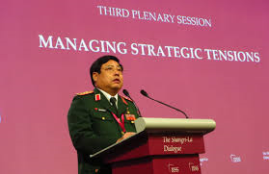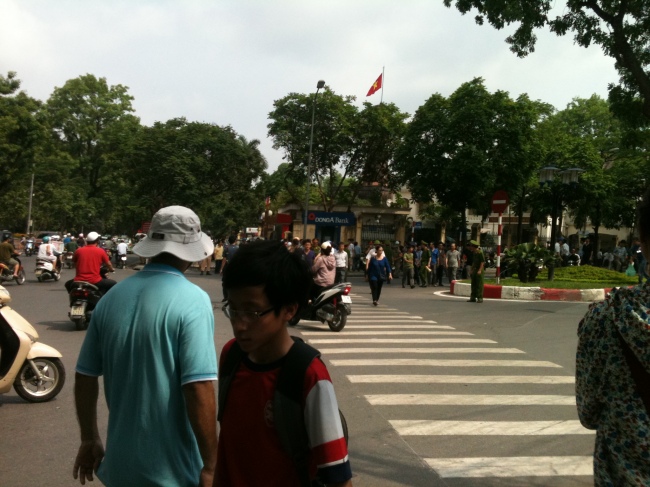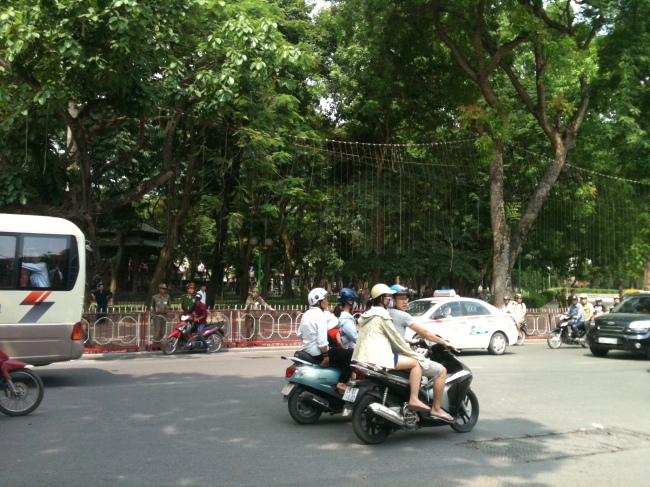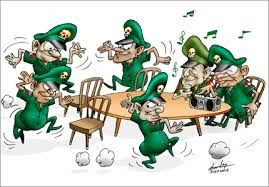Following up from my last post about the postponement of the 10th Communist Party of Vietnam Central Committee, it is now abundantly clear that the 10th Plenum has been postponed again and will probably be held from 5-15 Jan 14, about eight months after the 9th Plenum was organised in May 2014.
Unlike the postponement of the Plenum from October to December 2014, which could be partly explained by the need to allow for the Vietnamese National Assembly to hold its vote of confidence before the Party held its own vote of confidence for Politburo members, the further postponement of the 10th Plenum by another month suggest deeper tensions are at play in the Party leadership.
But first, I’d like to take a step back to address why an eight-month gap between Plenum sessions should be any cause for excitement among Vietnam watchers. Firstly, the eight month gap between the 9th and 10th Plenum is the longest gap between two Plenum sessions in recent Party history. Looking back at the last 18 years of Plenum meetings since the 8th Party Congress in 1996, the longest ever gap between two Plenum sessions was about seven months. Furthermore, even a seven-month gap between Plenum sessions was not very common, occurring only once during the 10th Party Congress (2006-2011) and once during the 8th Party Congress (1996-2001). An eight month gap also means that the Central Committee of Vietnam is contravening Article 16 in the Party Statutes that state that the Central Committee should meet once every six months. The postponement of the 10th Plenum to January 2015 will also mean that 2014 will be the only year where the Party Central Committee has only convened one meeting since Article 16 was amended in 1996 to require a Central Committee meeting every half a year. As I mentioned in my October post, the Communist Party of Vietnam is an organisation that appreciates form and rules and Party members have picked up on this anomaly and have started to raise questions about the delay.
Looking back at the pattern of Central Committee Plenum sessions since 1996, it also seems that the current 11th Party Congress leadership appears to be less enthusiastic about organising Central Committee Plenums than the 8th-10th Party Congresses. On average, the 8th, 9th and 10th Party Congresses organsied about 13.3 Central Committee Plenums, although some of their Plenums were split into two separate sessions, raising the total number of times each Central Committee met to an average of 14.3 meetings per 5-year Congress term. In comparison, the 11th Central Committee has met nine times, with a tenth meeting forecast in January 2015. This means that for the 11th Central Committee to meet at least 14 times in its 5-year term, the Party will have to organise another four meetings within the 12 months remaining before the 2016 Party Congress. (The dates of the 2016 Party Congress have not been announced but it is expected to be held before the 2016 Tet holiday that begins on 7 Feb 16.)
While it is certainly not impossible to organise four Central Committee meetings in a year, the apparent slowdown in the pace of organisation of Central Committee meetings is an interesting phenomena and appears to hint that the Vietnamese Central Committee is becoming less influential in Vietnamese politics and Party leaders no longer see it as necessary to organise as many Central Committee meetings to seek their approval on major policy decisions.
However, this reading is erroneous as the 11th Central Committee has shown that it does exercise greater power and influence than its predecessors on at least two separate occasions since it was appointed in 2011. The first incident took place during the 6th Plenum in October 2012, where the Central Committee rejected a proposal from the Politburo to punish PM Nguyen Tan Dung. The second demonstration of the growing power of the Central Committee took place during the 7th Plenum that was organised in May 2013, where the Central Committee rejected two Politburo candidates proposed by the Politburo in favour of two other candidates that were closely backed by PM Dung.
Therefore, I see the continued postponement of the 10th Plenum as being related to the fact that the 11th Central Committee has become a powerful battleground for Vietnam’s top leaders. As we have seen from the 6th and 7th Plenum sessions, the Central Committee sided with PM Dung versus General Secretary Nguyen Phu Trong, the supreme leader (on paper) of the Party. Talk in Hanoi indicates that GS Trong has been behind both the postponements of the 10th Plenum as he grapples with an ever-more powerful PM Dung. According to Hanoi’s gossip-mongers, GS Trong had first delayed the 10th Plenum as he fought hard to retain a toothless three-level vote of confidence in the National Assembly. By pushing through the retention of the three-level vote of confidence in the parliament, GS Trong ensured that the Politburo would be able to follow the same vote of confidence mechanism with little risk of its top leaders, especially GS Trong himself, being forced to resign and/or deeply shamed.
For the second delay of the 10th Plenum, rumours are circulating that GS Trong is trying to fend off attempts by PM Dung to add discussions on political and economic reforms to the agenda of the 10th Plenum so that these reforms could be added to the draft documents for the 2016 Party Congress. Recent corruption revelations involving some of PM Dung’s former associates also hint that GS Trong may be using the month of December to gather evidence to again bring charges of dereliction of duty against PM Dung at the 10th Plenum. Whether these rumours are in fact will be proven when the Plenum hopefully convenes in the second week of January 2015.
Meantime, while the top Party leaders appear to be using the 10th Plenum to further their own political plots and games, Party members are becoming increasingly dissatisfied that their leaders are allowing their tensions to affect the normal functioning of the Party and the Central Committee. Central Committee members are themselves starting to complain that the Politburo is not according the Central Committee the respect and importance that is enshrined in the Party’s Statutes and Platform. Given this growing unhappiness, are the Politburo leaders risking a backlash from the Central Committee and lower levels of the Party? Let us not forget that 2015 is not an ordinary year in the Party as all provincial party committees will be organising their respective party congresses and this is an opportunity for Party members to air their views and opinions on the future of the Party. I have heard younger Party members speak of their desire to see major changes in the Party’s ideology and approach and their frustration that the current Politburo leaders are more interested in their own political infighting than in improving the Party and country. However, is the ground sweet enough to see some major changes or are the benefits of maintaining the current political system and practices enough to curb the desire for change in young Party members. Well, I don’t have any answers now but time will tell in 2016.







